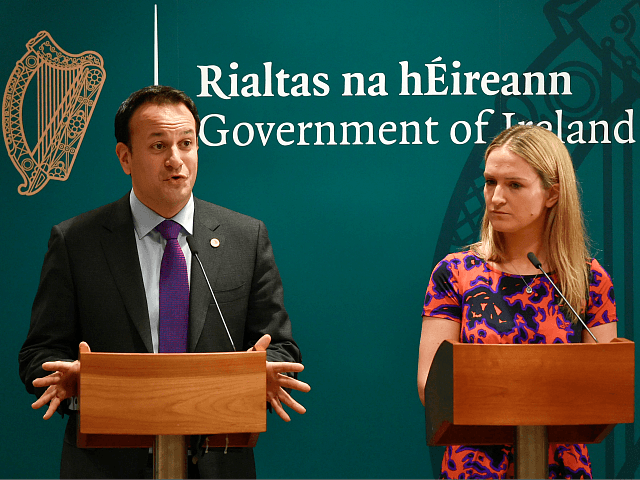The European Union’s facade of confidence in the Brexit negotiations is beginning to crack, as the Irish government admits it will need “mega-money” in aid to survive the fallout of “No Deal”.
British Brexiteers have long argued that the United Kingdom should have been making serious preparations for a clean exit from the EU on World Trade Organization (WTO) terms — “No Deal” — to strengthen its hand at the negotiating table.
They appear to have been at least partially vindicated now at the eleventh hour, as the Republic of Ireland — arguably the EU member-state which has been most belligerent towards Britain up to now — has begun to panic. The Atlantic-facing nation is now highlighting the hugely damaging impact No Deal could have on its own farmers and fishing industry, in particular.
“There is a high level of awareness of Ireland’s unique exposure to the UK food market. But I think nobody wants to talk about it right now because there is still a hope and expectation that a level of sanity will prevail,” Minister for Agriculture Michael Creed told the Irish Independent.
“I think we would get help. It’s all about the level of help,” he added with a hint of desperation.
The United Kingdom has a massive trade deficit with the European Union, and will be its single-largest export market after Brexit — a fact Brexiteers believe should have given London a great deal of leverage in Brussels if it had negotiated with more confidence.
Creed observed that some 50 percent of Irish beef exports are currently absorbed by the British market, and that around a third of fish caught by Irish boats are lifted from British waters — an arrangement which has proved highly damaging to the British fishing industry, and which would be terminated by a clean Brexit.
In terms of the aid Ireland would require to sustain itself, Creed was blunt: “You’re looking at hundreds of millions here. Between the beef industry and the fishing industry we’re talking mega-money.”
The panicked observations seem to have been prompted by the dawning realisation that, should Theresa May’s “worst deal in history” be rejected and Remain diehards fail in their quest to derail Brexit entirely, No Deal will become inevitable.
“In racing parlance the odds are slashed on a hard Brexit,” Creed observed.
“A ‘good Brexit’ would not be as good as what we have right now – but a ‘hard Brexit’ is a beast of a different colour altogether,” Creed warned, saying he would be lobbying hard to his country to save emergency aid from the EU in the event of No Deal.
The bloc may struggle to support the Republic to the extent Mr Creed would prefer, however, given the parlous state of the Eurozone and the impending loss of billions of pounds in British contributions to its central budget.

COMMENTS
Please let us know if you're having issues with commenting.